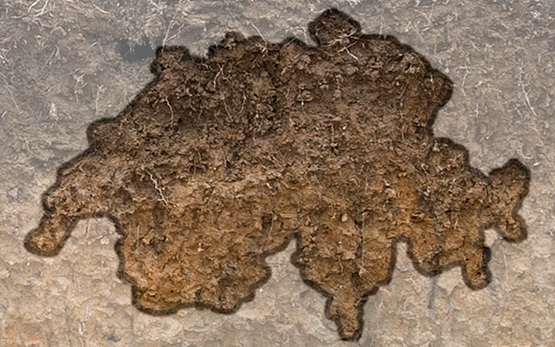Bacteria break down contaminants in the soil, make nutrients available to plants and protect plants from pathogens. Agroscope has analysed soil bacterial diversity throughout Switzerland for the first time.
Agroscope researchers investigated the important question of what bacteria occur in Swiss soils. Do similar bacterial communities also have similar environmental preferences? Which environmental factors have the greatest influence on the occurrence of soil bacteria? In order to assess the current state of bacterial communities in Swiss soils, researchers investigated these issues in an interdisciplinary consortium together with Swiss Biodiversity Monitoring (BDM; www.biodiversitymonitoring.ch) and Swiss Soil Monitoring Network (NABO; www.nabo.ch). For the first time, researchers had recourse to soil samples from the BDM’s sampling network, whose locations are distributed evenly throughout Switzerland.
Soil pH strongly shapes bacterial community types
A total of 48,568 bacterial ‘species’ were detected in the 255 different soils sampled. These ‘species’ could be classified into six bacterial community types (BCTs) with similar bacterial communities. These BCTs could be arranged along a pH gradient, differed in terms of their geographical distribution pattern, and had different nutrient preferences. In addition to pH value and nutrient availability, clay content and altitude also played a role.
Furthermore, a detailed study of the individual bacterial species revealed that 3998 ‘species’ were associated with one or more BCTs and/or environmental factors. The results also clearly showed, however, that not all of the influencing factors have been recorded, and that there are still many bacterial species with an unknown response to environmental influences.
Studies of the BCTs and the individual bacterial ‘species’ revealed detailed correlations of specific bacteria with specific environmental factors. These pivotal findings are groundbreaking for future studies aiming to understand and predict the responses of bacterial communities to environmental changes and the impacts on ecosystem functions produced by these changes. Furthermore, this project provides an important future basis for defining factors for the targeted influencing and promotion of bacterial communities in soils, in order e.g. to support sustainable agricultural production.






